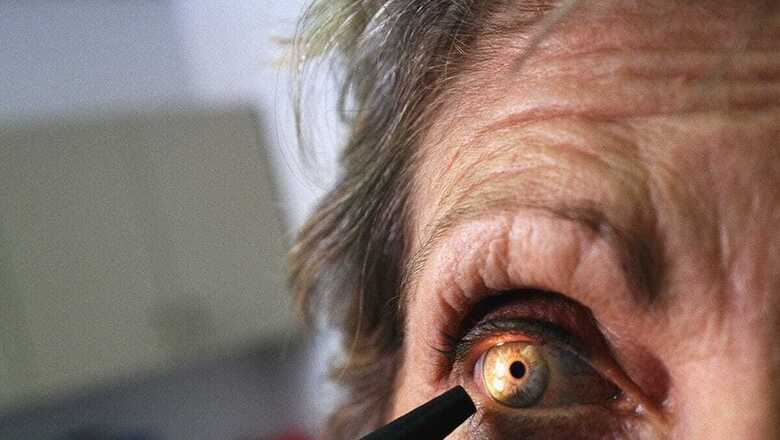
views
A cataract is a medical condition that refers to the cloudy areas formed on the lens of the eyes. It is one of the most common age-related disorders known to humans that becomes severe with time. The lens is suggested to be made of proteins, which tend to break down with age, leaving cloudy patches that affect a person’s vision. It can make daily activities like reading and driving difficult as cloudy lenses make it appear that an individual is looking at the world through a frosty window. Initially, cataracts may not affect your vision but it gets worse eventually. Here’s everything that you need to know about this eye condition.
Types of cataract
Besides age-related cataracts, there are a few more types:
Pediatric cataracts: These are observed in babies and children, either they can be born with it as the condition is hereditary or it can be caused due to external trauma and injury. Pediatric cataracts require immediate medical attention to avoid severe damage to the eyesight.
Traumatic cataracts: These types of cataracts develop after suffering from eye injuries.
Secondary cataracts: Cloudy film develops on the lens capsule, the membrane that covers the lens disturbing the vision. They are easily treatable.
Symptoms:
Cataracts do not hurt but their presence causes discomfort with blurred vision. A person’s eyes may also turn sensitive to light.
The most common symptoms of cataracts can be:
- Cloudy, blurred, or foggy vision
- Colour may appear to seem different
- Eyes can grow sensitive to light
- Double vision
- Unable to drive, read or perceive things normally
- Near-sightedness can become worse
Treatment:
Consult a doctor if you notice a sudden eyesight change, double vision, flashes of light, and sudden headache. An eye examination will help determine if you have a cataract. Glasses are often prescribe. When glasses do not solve the problem, cataract surgery is the only effective option.
Post-surgery precautions:
Just the surgery will not ensure perfect vision, there are precautionary measures that one must perform after the procedure. Avoid rubbing eyes, ensure soap and shampoo do not enter the eyes, avoid strenuous exercise and use the recommended eye drops at regular intervals.
What are the risk factors?
Though cataracts develop with age there are a few factors that might put you at a higher risk of contracting them:
- Smoking increases the risk of cataracts.
- Excessive exposure to bright lights or sunlight can damage vision. Ensure to wear sunglasses with an anti-UV coating to shield your eyes.
- Just like dental check-ups, prioritise eye check-ups and eye care.
Read all the Latest Lifestyle News here




















Comments
0 comment